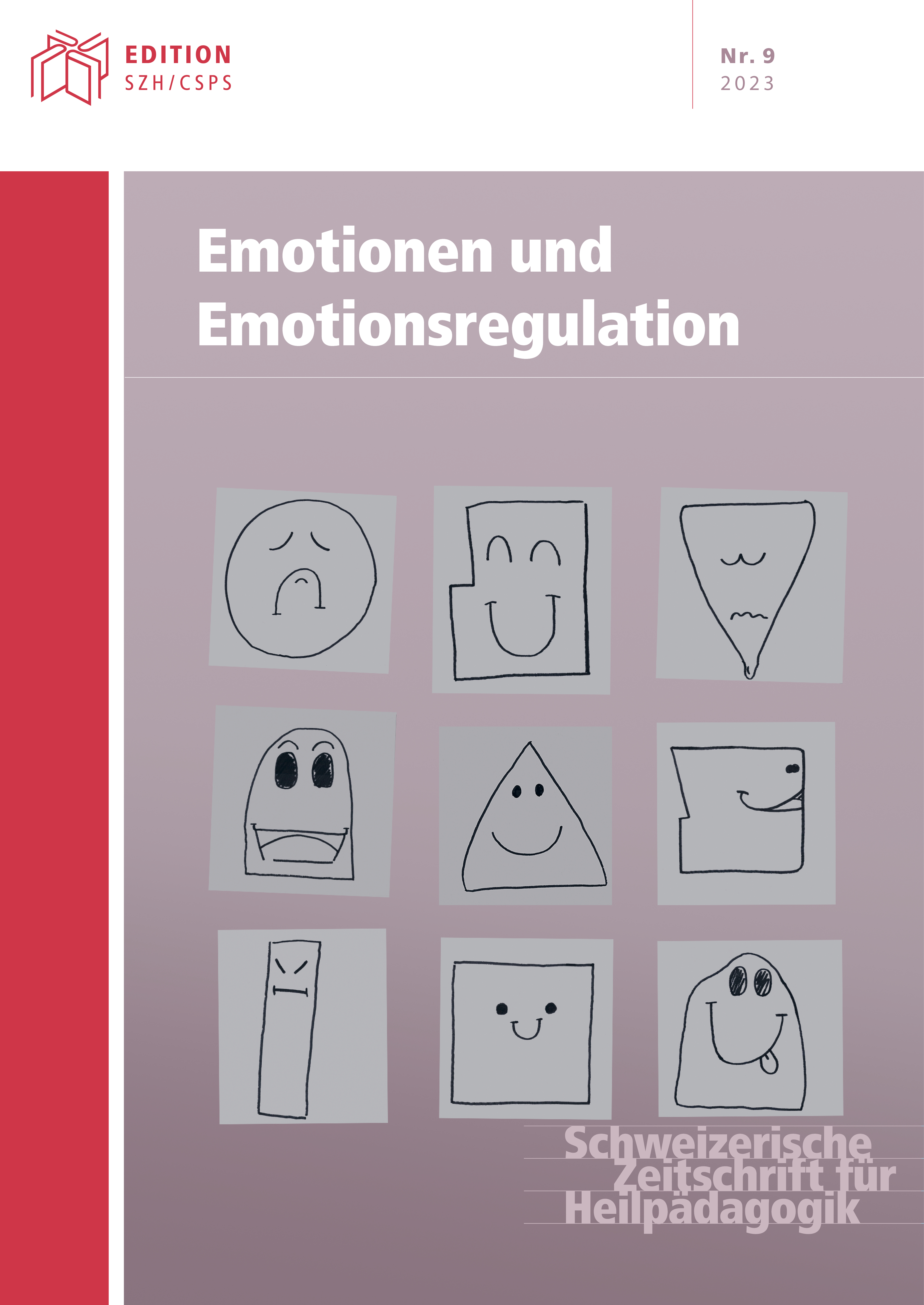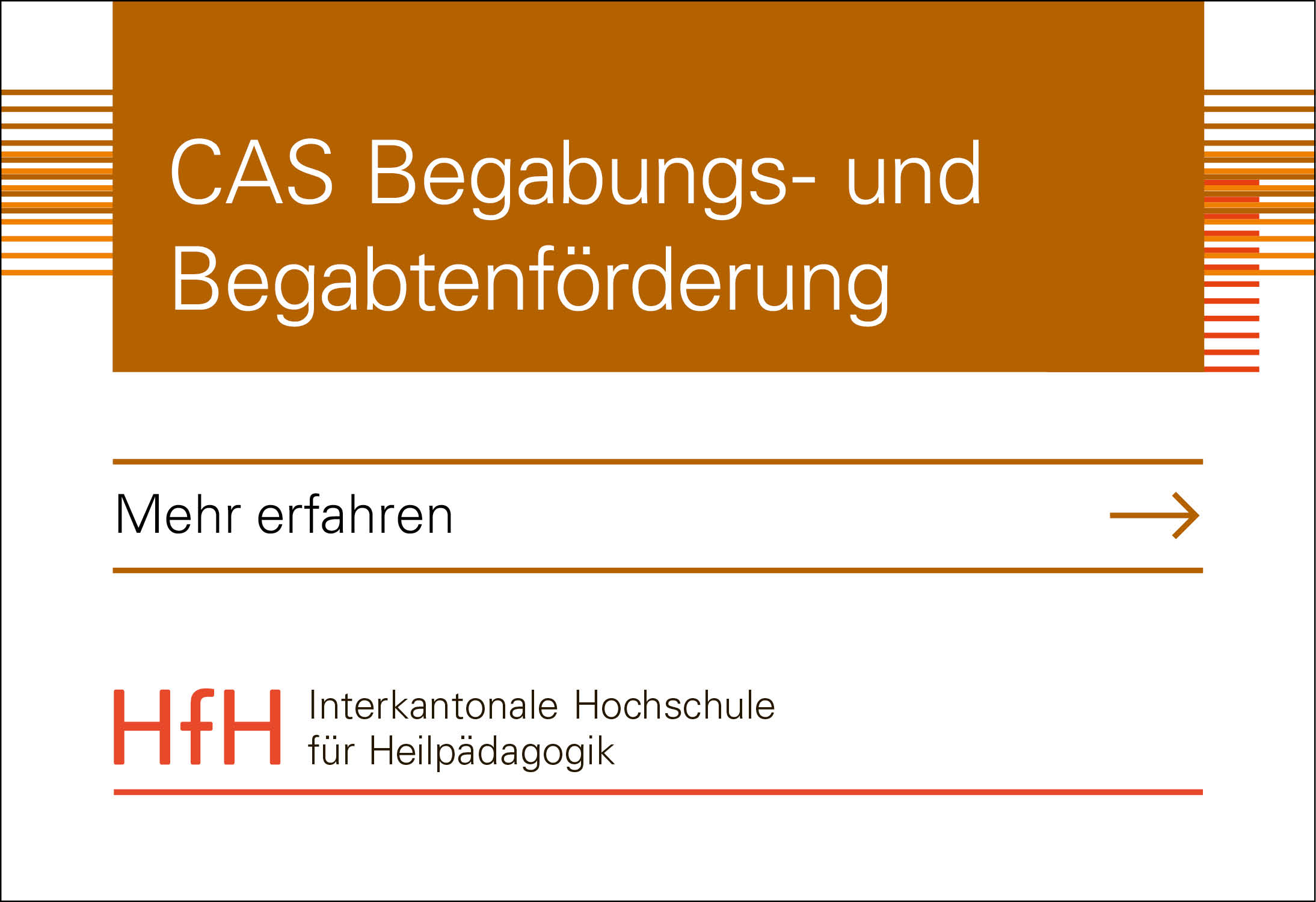Emotionen und Emotionsregulation im Vorschulalter: Was zeigt sich im dyadischen Spiel?
DOI:
https://doi.org/10.57161/z2023-09-01Schlagworte:
sozial-emotionale Entwicklung, Vorschulalter, Spiel, frühes Lernen, soziales LernenAbstract
Der Emotionsregulation wird eine hohe Bedeutung für die gesunde Entwicklung und für das erfolgreiche Lernen beigemessen. Ferner führen hohe soziale und emotionale Kompetenzen zu mehr Akzeptanz in einer Gruppe, was wiederum das Wohlbefinden positiv beeinflussen kann. Der Artikel gibt einen Einblick in die ersten Resultate des Projekts «EmU – Emotionen unter Kindern» des Schweizerischen Nationalfonds (SNF) und formuliert daraus Erkenntnisse für die Praxis.
Literaturhinweise
Chaplin, T. M. & Aldao, A. (2013). Gender differences in emotion expression in children: a meta-analytic review. Psychological bulletin, 139 (4), 735.
Holodynski, M., Hermann, S. & Kromm, H. (2013). Entwicklungspsychologische Grundlagen der Emotionsregulation. Psychologische Rundschau, 64 (4), 196–207. https://doi.org/10.1026/0033-3042/a000174
Mayr, T., Bauer, C. & Krause, M. (2012). KOMPIK Kompetenzen und Interessen von Kindern in Kindertageseinrichtungen: Ein neues Beobachtungsverfahren für Kindertageseinrichtungen. Frühe Bildung, 3, 163–165.
Mirabile, S. P. (2014). Parents’ inconsistent emotion socialization and children’s socioemotional adjustment. Journal of Applied Developmental Psychology, 35 (5), 392–400. https://doi.org/10.1016/j.appdev.2014.06.003
Nischak, P., Lorusso, S., Diebold, T., Burkhardt Bossi, C. & Perren, S. (2023, August 30th). Development and Validation of the Emotion Regulation Scoring System (ERSS). An Observational Tool to Assess Emotion Regulation in Preschoolers in Play Situations with Peers [Poster presentation]. European Conference on Developmental Psychology, Turku, Finland. http://dx.doi.org/10.13140/RG.2.2.31119.56488
Perren, S. & Diebold, T. (2017). Soziale Kompetenzen sind bedeutsam für gelingende Peerbeziehungen und Wohlbefinden in der Kindertagesstätte. Frühe Kindheit, 2, 30–38.
Perry, N. B. & Dollar, J. M. (2021). Measurement of behavioral emotion regulation strategies in early childhood: The Early Emotion Regulation Behavior Questionnaire (EERBQ). Children, 8 (9), 779.
Sanchis-Sanchis, A., Grau, M. D., Moliner, A. R. & Morales-Murillo, C. P. (2020). Effects of age and gender in emotion regulation of children and adolescents. Frontiers in psychology, 11, 946.
Shields, A., & Cicchetti, D. (1997). Emotion regulation among school-age children: the development and validation of a new criterion Q-sort scale. Developmental psychology, 33 (6), 906.
Valiente, C., Swanson, J., DeLay, D., Fraser, A. M. & Parker, J. H. (2020). Emotion-related socialization in the classroom: Considering the roles of teachers, peers, and the classroom context. Developmental Psychology, 56 (3), 578–594. https://doi.org/10.1037/dev0000863
Veröffentlicht
Zitationsvorschlag
Ausgabe
Rubrik
Lizenz
Copyright (c) 2023 Tatiana Diebold, Carine Burkhardt Bossi, Pablo Nischak, Sonja Lorusso, Sonja Perren

Dieses Werk steht unter der Lizenz Creative Commons Namensnennung 4.0 International.









